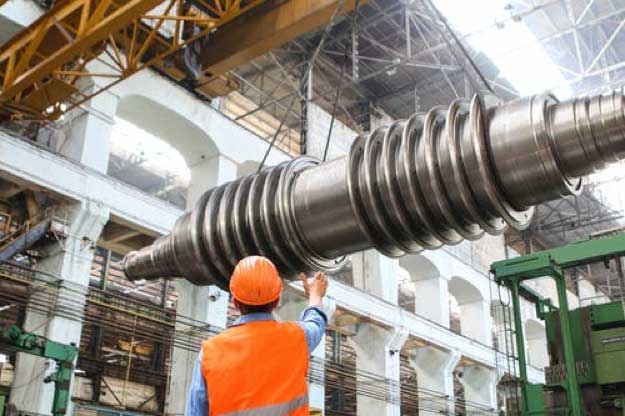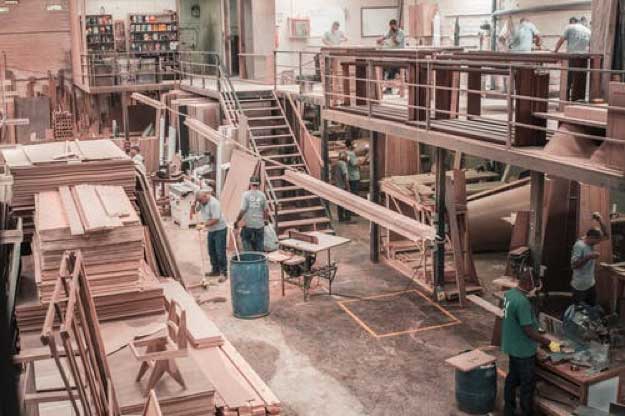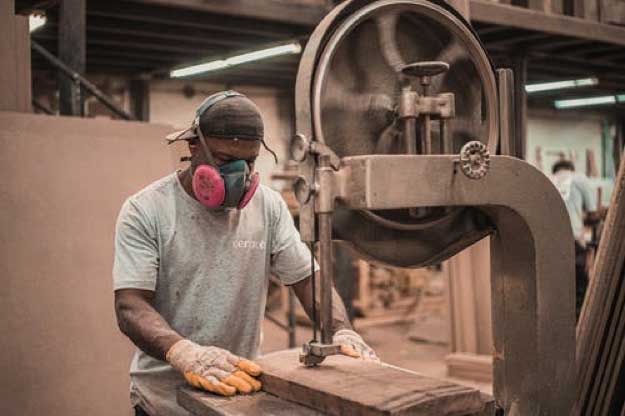Manufacturing has transformed over the past several decades with processes streamlined via lean practices.
When we picture the manufacturing industry, our minds tend to wander to the cliche image of dirty, greasy, male-dominant workers performing strenuous labors. You also may think the US manufacturing industry is on the decline and has tons of empty factories and buildings that were once booming. What these common misconceptions do not include is the progress and transformation the industry has made over the past several decades.
We need manufacturing products for…everything. It is second nature to think that labor or blue-collar jobs do not need higher education or practiced skills. That is anything but true. The amount of skill and hard work that comes with working in the manufacturing industry is extremely high. With the increase in technology over the years so has an increase in skills required in this industry. In fact, over 50 percent of manufacturing jobs are held by people with some level of college education. You need to be able to design, create, and manage different processes.
Again, we tend to associate manufacturing with horrible working conditions and very unsafe methods. As the industry has progressed and modernized, less dangerous options have been improving the sector. Thanks to technology, many tedious and manual methods have been automated. Unneeded steps that delayed efficiency were removed, enabling processes to be streamlined via lean practices.
If companies are still enforcing the once common treacherous laborers, employees will file workers’ compensation because of unsafe conditions. Employers must ensure they follow safety procedures to avoid injuries at work. You can contact professional help to see if you have a case that could be relevant for workers’ compensation.
Although there are laws to help make the environment free from known dangers, it is important you know the difference just in case. Unsafe working conditions may include malfunctioning or unstable warning systems, blocked safety exits, and equipment that is inadequate.

One of the biggest misconceptions regarding the manufacturing industry is perhaps the thought that demand for manufacturing jobs is low. There is a need for skilled workers, and when people do not realize this availability, they are less likely to look for a job in this field. Nearly one-third of the US economy is manufacturing-based and has a greater economic output than Brazil, India, Italy, and Canada.
Manufacturing is one of the most important causes of economic growth and the more people we have filling the jobs, the higher the growth. Each manufacturing job supports three other jobs in the economy. Individuals looking for jobs or work do not realize the importance of their impact that they have not only nationally but internationally as well.
The average manufacturing job pays anywhere between $30,000 and $200,000. The more qualifications and advanced skills you have, the higher the salary. However, even if you do have little to no education and skill, you can still be making around $30,000, which can be the same amount someone earns with a college education. Hourly compensation is 17 percent higher in manufacturing than any other industry. Also, you also should expect to have high valued benefits. Workers have medical insurance and retirement packages that are extremely substantial.

The manufacturing process is necessary for all supply and chain industries. All businesses both provide and consume products that are deemed by manufacturing. Marketing is not limited to traditional means when it comes to this. Oftentimes certain companies are recommended and used by similar industries that sell or use the same product. They rely on satisfying customers’ needs so marketing strategies are extremely important, so techniques such as video marketing and social media have become a new branding.
People often speculate that our future will not need manufacturing jobs and products. Upcoming and modern businesses are popping up all over the place but they can not skip this process. The sector in our manufacturing industry fuels the economy, so it will always be needed. Plus, the number of people needed to fill skilled labor jobs are always increasing. Global trade relies on manufacturing, so there is no way that it will come to an end. 80% of world trade is from manufacturing and only 20% is in service.

It is true that there has been an immense amount of development and advancement with their technologies. This does not mean robots will soon be taking every worker’s job and the need for would be on a straight decline. Jobs are in fact predicted to be increasing within the next decade or so. Automated robots were never expected to be taking over anything, but simply to help improve the efficiency of the industry.
No matter how you cut it, people have misconceptions about laws in the manufacturing industry. It requires much more skill and knowledge than what pops in our head as a blue-collar worker. These thoughts can drive many people from actually pursuing a career in this field. However, in reality, there are extremely attractive benefits and pay wages. Since technology, it is only increasing and becoming more and more advanced. Keep this in mind next time you are job searching or in a conversation with someone in the industry!
Scott Ellyson, CEO of East West Manufacturing, brings decades of global manufacturing and supply chain leadership to the conversation. In this episode, he shares practical insights on scaling operations, navigating complexity, and building resilient manufacturing networks in an increasingly connected world.